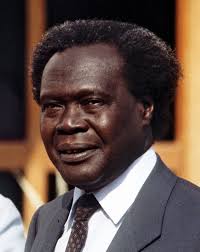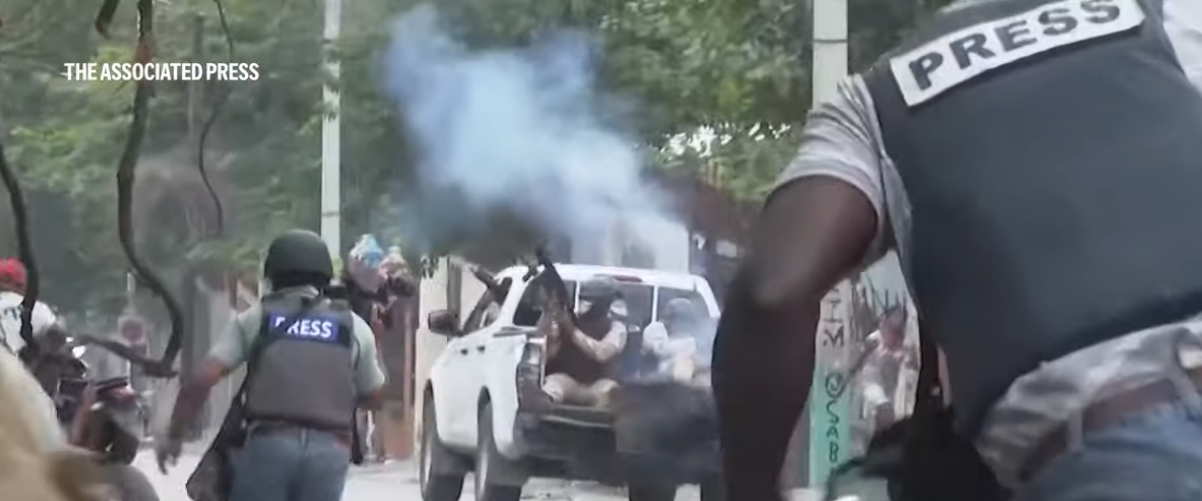Dr. Obote, who ruled Uganda twice died on October 10, 2005
The fact that Luwero afforded Museveni a classic ideal situation and ground for putting into effect, his design to divide and rule Uganda; In the prosecution of the war in Luwero he presented the Uganda National Liberation Army (UNLA) founded in the Moshi Conference by the Uganda National Liberation Front (UNLF) as “Obote’s Northern Soldiers”. As will be seen later herein, Museveni terrorized and brutalized the people of Luwero and in order to win the sympathies of the Baganda, he made such terror and violence to appear as having been wholly the misdeeds of the UNLA
GULU- UGANDA: It is most inconceivable that those who claim or propagate that Museveni’s Uganda is peaceful or that there are no gross violations of human rights have not heard of Museveni’s wars in the North and East and now in the West in Kasese District. What of the arrests of hundreds of Ugandans now in jails accused of treason? Some 150 people from Buganda alone and some desperate groups are presently in jails awaiting trial on that charge.
There have been killings and arrests by the NRA in Busoga (Jinja, Iganga and Kamuli Districts) since June 1989. 43 people from Busoga have recently been charged with treason and I have the names of 187 people killed by the NRA in the still ongoing massacres. There is unknown number of people in Mbale jail on the same charge- treason. Museveni’s Uganda must be a very special country to “enjoy peace” in the face of wars in three out of four Regions (Provinces) and where desperate groups in each of the four Regions have sought year after year to remove the regime by forces of arms.
In the latter part of 1989, the NRA units in Bunyoro- Masindi District- went on a rampage, terrorized villages and arrested leading persons there from only to return their bodies to the relatives to bury. Such is the nature of “peace” which is said to exist in Uganda.
In Uganda today, it is a treasonable act to exercise the constitutionally guaranteed freedom of conscience, of expression and of assembly and association. What Museveni fully guarantees and rewards handsomely is servile flattery and praises (sycophancy), of his greatness, alleged intrepidity, invincibility and as the only person alive who has all the answers to all problems (some of them created by him) which afflict Uganda. Thus his wars for all intents and purposes are wars to banish freedom of thought in every brain and home throughout Uganda; and wherever and to whoever submission is humiliation beneath the dignity of a citizen, scorched-n earth retribution and massacres are brought into play. That is “the establishment, by force if necessary of a one Party “popular democracy” in Uganda under the NRM”.
I hope to show in another part of this Notes the extent and nature of force which Museveni used in Luwero for the establishment of his idea of grass root “popular democracy”. Better brains, than mine, trained in the science and practices of democracy, can not fail to find it odd that a person who claims to be extremely popular, as Museveni does, should resort to force, as Museveni is going and has been doing throughout his adult life, as the most appropriate means to establish democracy.
No amount of propaganda in such a situation can bury the fact that the claim must be a blatant lie and that Museveni’s objective is not democracy but some form of governance where the citizen must be suppressed and forced to obey the ruler and never to question neither the policy nor the deeds of the ruler- The classic situation of a Police State.
Museveni’s determination to consolidate his Police State is clearly observable in the origins and the prosecution of his wars against citizens of Uganda. The current wars in Acholi., Lango and Teso, and North Bukedi are all extensions of Museveni’s wars in Luwero. The objective origin and the extent and nature of the force used in each case are the same, only rationalization for purposes of tactics, as publicly stated have differed. Luwero was rationalized as a war launched because the 1980 elections were allegedly rigged in favor of the UPC. Museveni chose war and not the constitutional course to redress the matter through the law Court.
The war in Acholi (Gulu and Kitgum Districts) was rationalized, by Museveni, as quelling rebellion by thr remnants of the Okello and Okello forces. However, when we come to the wars in Lango and Teso, North Bukedi, Kasese and the NRA assaults and sorties in Bukedi, Bugishu, Busoga and Karamoja, Bunyoro and elsewhere, attempts for rationalization have defied his dissembling mind. Instead he has variously described them rebels, cattle rustlers, gang stars, robbers and bandits, without stating which is what. Ti is my task to unravel Museveni’s deliberate ambiguity.
The fact that Luwero afforded Museveni a classic ideal situation and ground for putting into effect, his design to divide and rule Uganda; In the prosecution of the war in Luwero he presented the Uganda National Liberation Army (UNLA) founded in the Moshi Conference by the Uganda National Liberation Front (UNLF) as “Obote’s Northern Soldiers”.As will be seen later herein, Museveni terrorized and brutalized the people of Luwero and in order to win the sympathies of the Baganda, he made such terror and violence to appear as having been wholly the misdeeds of the UNLA.
Failure by the international community to grasp Museveni’s atrocities in Luwero at the time is at the root of today’s concealment of the genocide. Museveni tried very hard to expand his Luwero terror to other parts of Buganda but was contained within the Luwero Triangle. If he had succeeded to expand, it is doubtful that a significant number of Baganda would be found today who would have any sympathy with the North and East and other parts of Uganda in their current ordeal.






